You have questions? Munroe Bergdorf has the answers
To mark International Transgender Day of Visibility, one of the UK’s most outspoken champions of trans rights – Munroe Bergdorf – fields an array of questions from the great and the good.
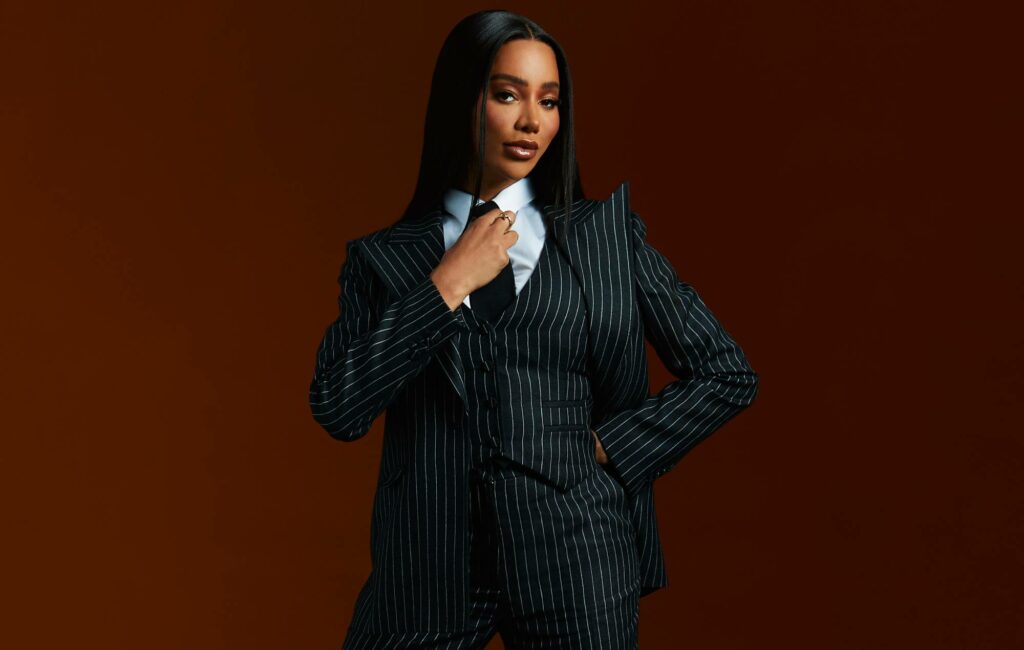
Now more than ever, trans people are under attack, whether with their identity being ‘debated’ in the media or by extreme right-wing groups actively working hard to remove their right to live their life authentically and peacefully.
The UK Census 2021 revealed that only around 48,000 people (0.01% of the population) identified as trans men with the same number identifying as a trans women. The trans community is a small minority, and yet it is one that is grossly and disproportionately targeted by people with openly prejudiced views. And the generational divide is evident: 91% of baby boomers identify as straight, compared to only 71% of Gen Z. One thing is certain: the future is undoubtedly progressive and inclusive when it comes to sexual and gender diversity.
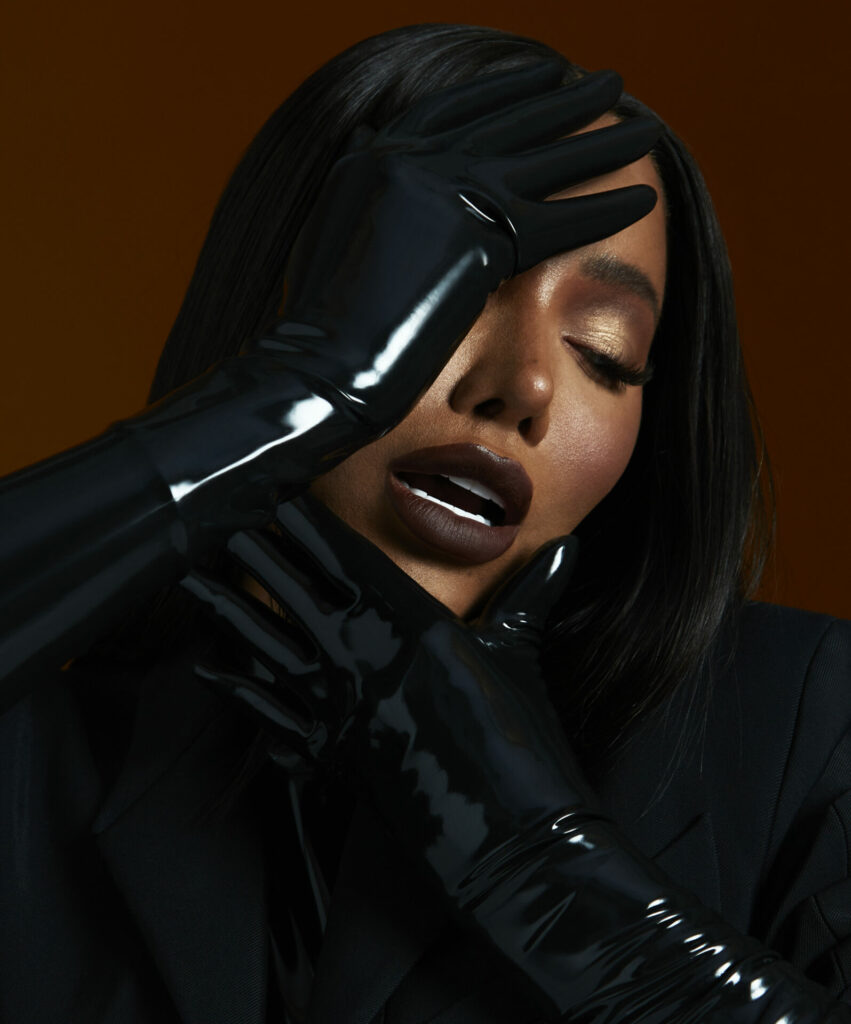
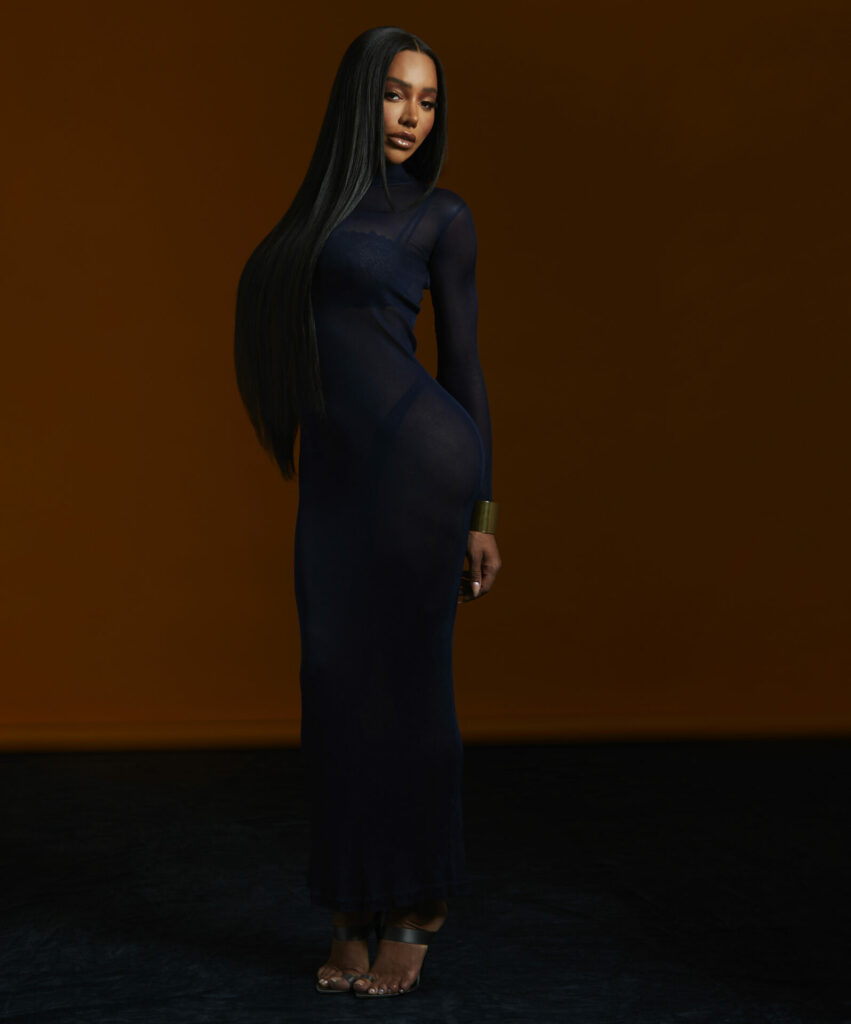
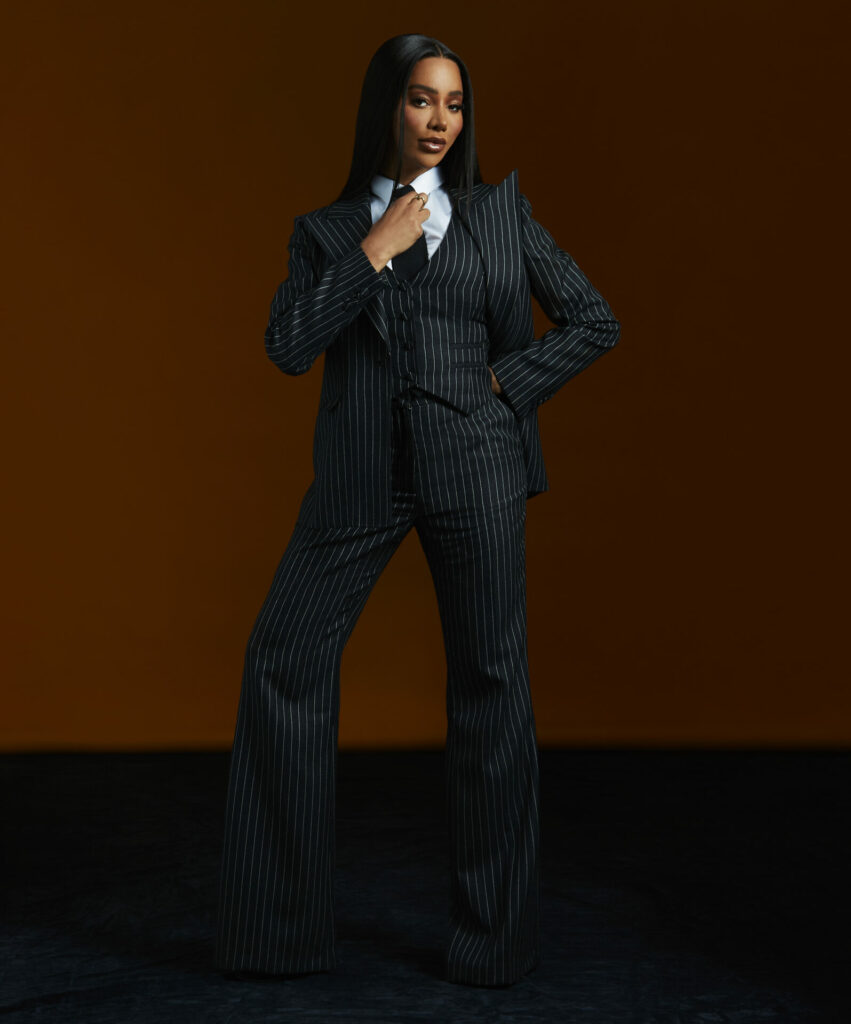
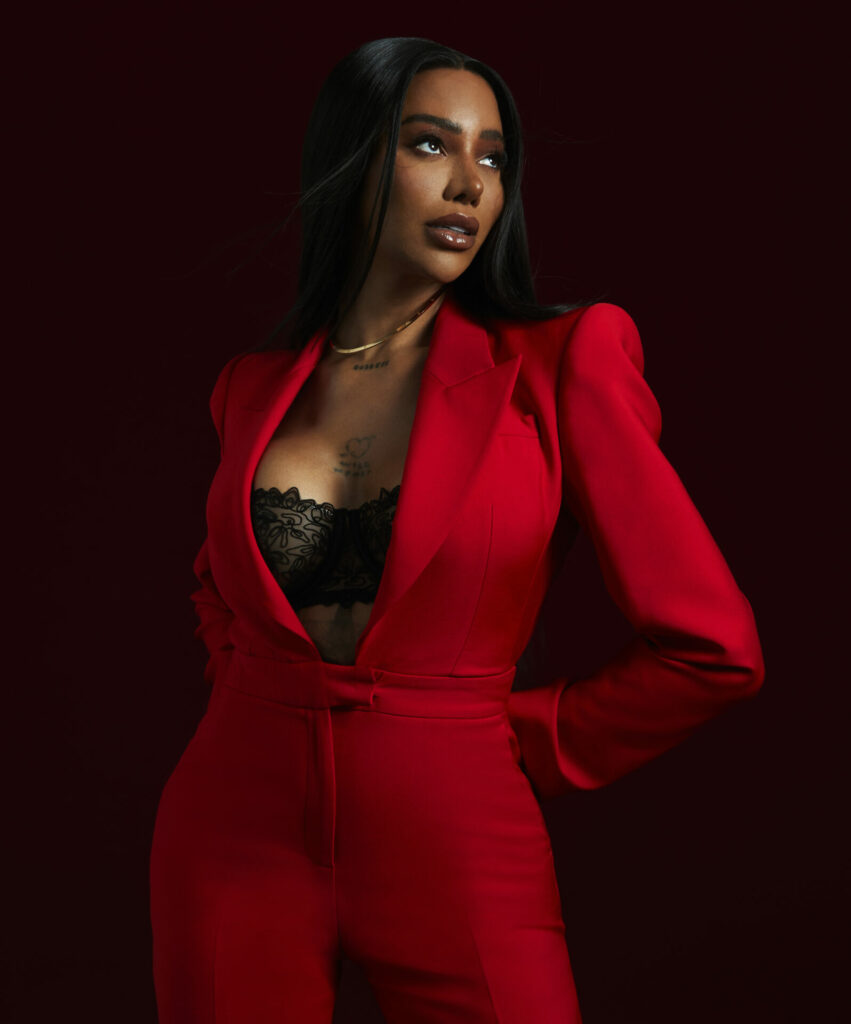
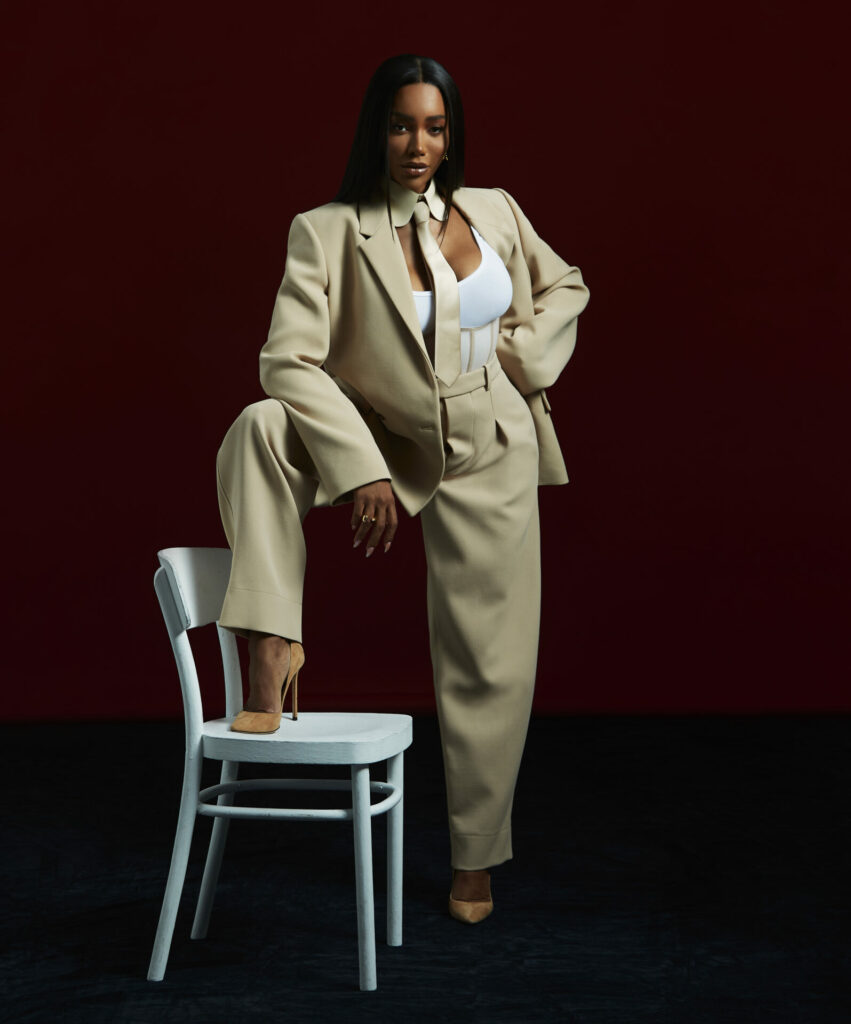
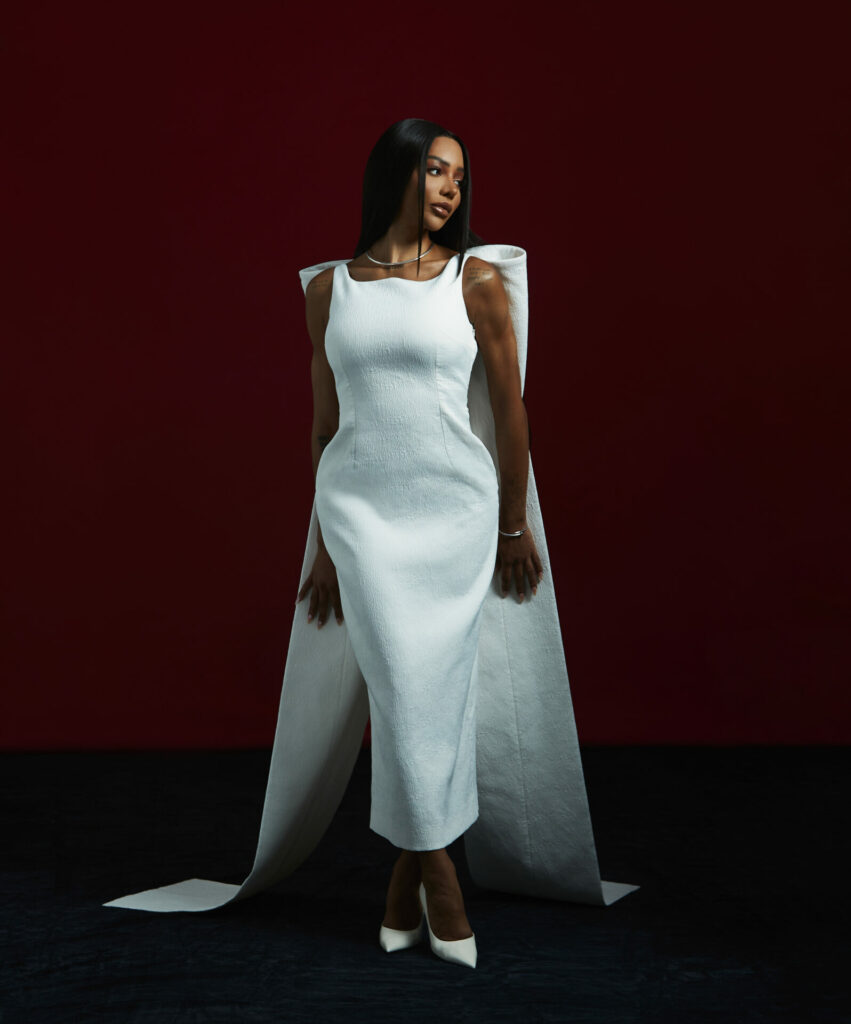
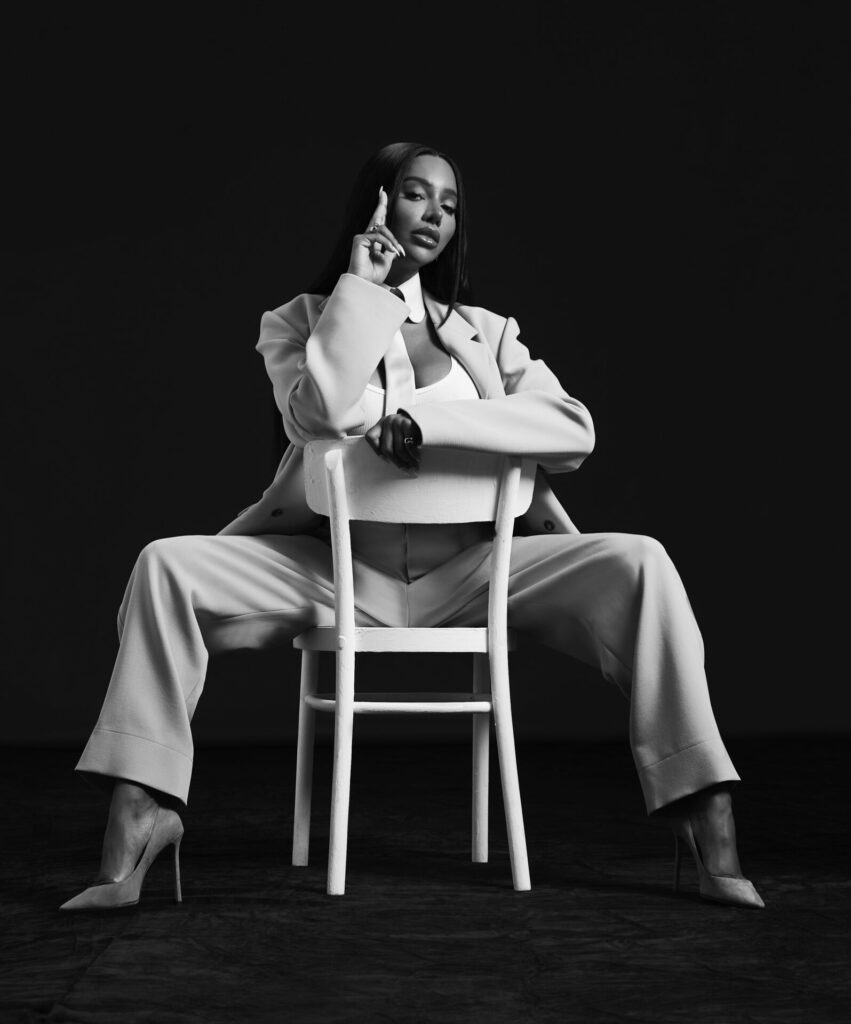
One of the UK’s most outspoken champions of trans rights, Munroe Bergdorf’s unapologetic and outspoken attitude to justice has seen her attract her fair share of enemies. Reassuringly, for every negative voice on social media or in the press, there is a growing number of allies prepared to stand beside a community that is under extreme threat, both from within society and through government policy. Here, Munroe takes questions from some of the biggest names in film, TV, politics, publishing, music, radio and beyond to commemorate International Transgender Day of Visibility, tackling issues as diverse as how to be a trans ally to the joys of embracing your authentic identity.
JOE LYCETT: Hi Munroe. Joe Lycett here. Longtime fan, first time caller. My first question is, what is the one bit of legislation or change that the government can do to improve the lives of trans people?
One thing, wow. There’s so many things that this government needs to do. Aside from leaving the House of Commons. We have a government that is not recognizing trans people’s humanity, and that comes into healthcare, welfare, access to housing, education, tackling mental health issues, hate crime, and homelessness.
The list is really endless, but really the priority has to be healthcare. And that doesn’t just start and stop at hormones. That starts with support and understanding what trans people go through. Recognising that there are so many hurdles before you even begin the process. And supporting people in being able to live the life that they want to live.
So I would love the government to stop gatekeeping our healthcare and to reform and support the transgender healthcare system, which is currently in free fall and massively underfunded and overwhelmed. So that would be my priority if I was to be Prime Minister.
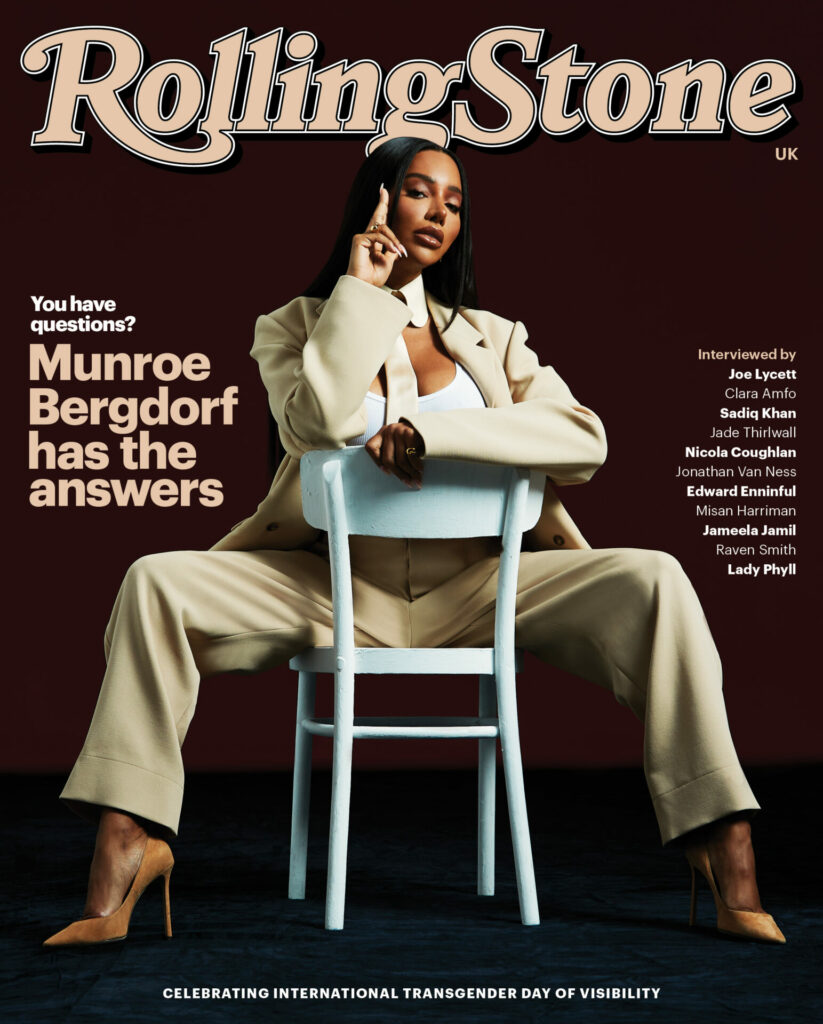
JADE THIRLWALL: What do you love most about being a woman?
What I love most about being a woman is that despite everything happening in the world, I feel a freedom within myself. Like all trans women, I’ve had to fight for my womanhood. My body feels like mine and that’s something that I’m thankful for every day.
NICOLA COUGHLAN: We’ve basically seen in media over the last couple of years, the erasure of trans people and this sort of idea that trans people have been around for only like 10, 15 years. And its sort of a ‘new thing’, when we know that’s not the truth. What I’d like to know is, do you have a trans figure from history who is someone that has been really inspiring to you, or that you feel like the world needs to know about?
There are so many incredible trans people that have contributed towards society and history. And so much of it has been buried. From religion to law making to just bigotry in the same way that what we’re seeing now, it’s really been a tough road for our community. And I think that often our contributions are downplayed or erased or overlooked. But the amazing thing about being in this industry, especially the fashion industry, is that I’m really living out the dreams of my ancestors. And that’s such an incredible honor that I don’t take lightly. And hopefully I’m also pushing the envelope further so that what I don’t achieve, those that come after me will be able to achieve it because I pushed it that further as well. So, I like to think of it as baton passing.
There are so many other transwomen that have come before me in the fashion industry, such as April Ashley, Caroline Crossley, Tracey Africa, Octavia St. Laurent. All of these women really inspired me. Especially at the beginning of my transition, because they had such big dreams, and it encouraged me to dream big as well and to go for what I wanted to achieve. And I wouldn’t have gone for it if I hadn’t have seen them. If I hadn’t seen Octavia in Paris Is Burning, if I hadn’t learned about April Ashley’s life and everything that she was put through. Same with Caroline Crossley.
We all owe them so much. All of these incredible women are such unsung heroes. They just haven’t had the recognition that they deserve. They really walked so we can run. We wouldn’t be seeing all of these conversations happen if it hadn’t have been for their stories and their resilience.
NICOLA COUGHLAN: We get to hear so much about the struggles of trans people and the amount of adversity you face unduly in society. But I would love to hear about your joy, something about the trans experience that you think is superhuman and brilliant and that people don’t get to see.
The joy of being trans is that you have access to a community that is so strong. And not just strong because of what we need to deal with in society, but strong enough to do the exploration of self in order to be happy. And I just think it’s an incredible feat to ask yourself questions about what do you really want? Who are you really? Rather than what do I need to do to fit in? How can I make people see me, rather than how can I see myself? And anyone that makes the decision to transition… Because being trans isn’t a decision, but the decision to transition… Anyone that is strong enough to make that decision and to explore that act of love for themselves, I’ve got so much respect for. That is the most incredible thing, regardless of whether or not it’s about being trans or making a difficult decision for yourself and exploring something that is a tough truth.
That’s why I wrote my book, Transitional, because I wanted people to understand that all of these tough decisions that we make for ourselves, that they are transitions in themselves because it’s taking the non-easy option. It’s asking yourself the tough questions. It’s confronting and healing from what you’ve been through in order to get to the place that you want to go.

JONATHAN VAN NESS: Happy International Transgender Day Of Visibility, Munroe. And first of all, thank you so much for all the beautiful work you do. Congratulations on your book. We love you so much. Okay, here’s my first hard-hitting journalistic question: what are the top three pieces of misinformation about trans people that you wish people knew were false?
It really starts with the myth that children are having surgeries. Trans kids are not having surgeries anyway. But you know who is having surgeries? Intersex kids against their will. So, if we are going to be talking about kids having surgeries against their will and bodily autonomy of infants, then let’s talk about what is happening to intersex infants against their will. I think that’s really, really important.
Number two, the myth or misunderstanding that we don’t already have access to women-only spaces with regards to transwomen. We have had access to women-only spaces since 2010, under the UK Equality Act, which entitles us to use the spaces that are in alignment with our gender identity. There’s so much concern and sensationalism around transwomen having access to women-only spaces, But there’s no statistics to suggest that it is a widespread problem, that is in any way going to put cisgender women at a disadvantage or in danger. So, I think that that’s a myth that we all need to be debunking because we have had access to these spaces and nothing has happened.
I think third, is that trans people are different to anybody else. You know, it’s really important that we stop seeing trans people as “other”. We are just people, just like everybody else. We are people that deserve employment, people that deserve love, people that deserve to live out their dreams and do whatever they want in the world. We have hopes, dreams, aspirations, talents, just like everybody else. We deserve to see that represented in every single aspect of society. In every industry, not just the entertainment industry or music industry or film industry, or fashion industry, which have been very progressive and supportive of trans people. But WHY ARE we not seeing trans people in many other industries? I think that we need to stop seeing transness as a media issue and as something that is a real life thing and real life people that are just trying to live their lives in the best way that they know how.

JONATHAN VAN NESS: Who is your favorite athlete of all time and why? Preferably figure skater or gymnast… Or tennis player. Those are selfish questions. Those are my favorite sports. Ooh, I love you Munroe.
I’m actually going to give a shout-out to Gary Lineker, just because of what he has done recently has highlighted so many issues within our own media. And as, you know a great British athlete, beloved national treasure, I think that he has spoken for so many people and really paid the price with regards to how his employer treated him. But it really highlighted a lot of things that needed to be highlighted. I’m going to give that one to Gary.
SADIQ KHAN: It is incredibly concerning to see the rights of trans people being attacked at home and abroad. What do you think is the most important thing a trans ally can do to show their support?
Hi Sadiq, thank you for being such an incredible mayor. I’m really proud to live in a city that is run by a mayor who is so trans-inclusive, so thank you. One of the most concerning things that our community is facing right now is the elevated levels of transphobic hate crime. People being attacked in the street, their workplaces, their homes. It’s just relentless. But if you see it happening, please intervene. If you see somebody in distress, then be there for them. I mean, when I first began my transition, I was attacked in public and nobody did anything. And I think it was the fact that nobody did anything that hurt more than the fact that I was attacked, because it almost makes you feel like you deserve it. But if someone attacks somebody and other people step in, that just feels so much more hopeful in a really hard situation. That you know the kindness of strangers is alive and well.
SADIQ KHAN: What do events like Trans Pride mean to you?’
Trans Pride, especially London Trans Pride is my favorite time of year. It just feels like what Pride should be, which is protest, which is rage in a non-performative sense. It’s just pure rage at what is going on in our country. It’s also celebration for the fact that we are still here and that our community is more visible than ever. There’s just so much joy there. It’s such a strange feeling because we’ve got so much to be angry about and we still find the joy. And year-on-year it gets more popular, more people show up. We have more and more allies there with us, marching with us, holding banners. I also think unfortunately, year-on-year things have got progressively worse, especially within the media for trans people. Seeing support grow, and to see our Pride event become more and more popular, not just with people who are trans, but with other people in our lives that support us being able to live with dignity. It’s not that big of an ask.

EDWARD ENNINFUL OBE, British Vogue Editor in Chief and Vogue European Editorial Director: What would be your advice to someone looking to be an ally to a young queer person?
My advice to being an ally for a young LGBT person is, listen. There are so many differences between our generations and the obstacles that we face are often not felt intergenerationally. I don’t know what it feels like to be Gen Z and Gen Zs don’t know what we had to deal with as Millennials. And I definitely don’t know what it’s like to be a Boomer. But I think it’s really important that we listen to each other, and not only listen to each other, but try to understand how we can make each other’s lives better. Because those differences are largely invisible because they’re feelings.
EDWARD ENNINFUL: What advice would you have for people who want to turn the tide on this attitude?
That really starts with educating yourself on what is actually going on. And it isn’t about concern for women-only spaces, and the violence that is happening to women and girls worldwide, because it isn’t coming from the trans community. It’s coming from cisgender men, mainly. So, there’s deflection happening.
We also need to be aware that transphobia within the conservative space is very en-vogue, in terms of trying to prove who is more hardline. A lot of the policies are discriminatory. They aren’t really about making life better. It’s about how can we stop this? How can we change this? How can we push back on change rather than how can we fix society? A lot of it’s about voting and the impending elections on both sides of the Atlantic.
There’s literally a list that is longer than my body of reasons why we are seeing what is happening. And I think that it’s really about understanding the nuances and just continuously staying abreast of what’s going on, because it’s until the elections are over, it’s going to be a snowball. Unfortunately, I don’t think that it is got as bad as it’s going to get. And that in itself is a call to arms because we are going to need support. We’re going to need allies. We’re going to need people speaking up on our own behalf. We’re a very small percentage of the population and we can’t do it alone.
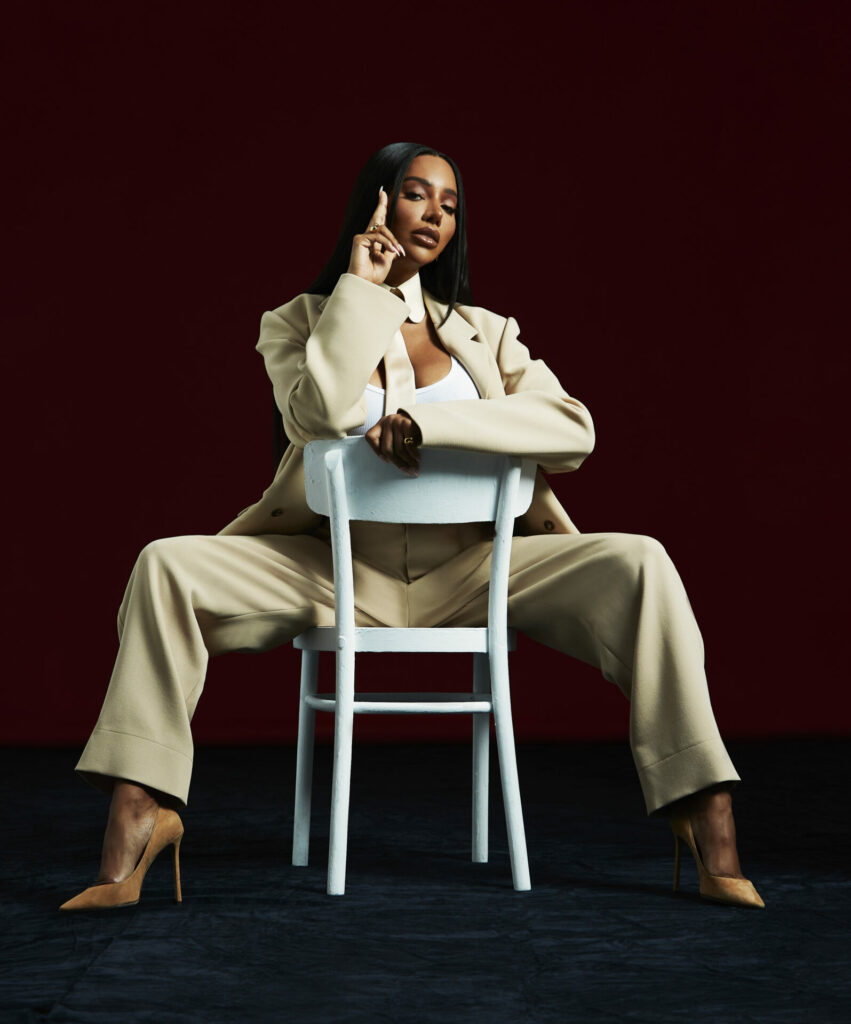
JAMEELA JAMIL: Was there a particular moment you have where you finally felt true to yourself?
I just try to wake-up as my truest self every day. I think it’s constant practice. I don’t think I’ve ever felt completely like my truest self, because there’s such a process of unlearning for us all. And constantly asking ourselves, is this truly me or is this something that I’m feeling because I think I’m meant to feel it? Or I’ve been encouraged because of socialisation to feel or believe. I just try to unpack constantly and question everything and live as authentically and as honestly as I can. It’s not easy, but it’s a daily practice.
JAMEELA JAMIL: Will you marry me?
Jameela, I can’t marry you. We both got men. But if it all goes tits up, maybe.
CLARA AMFO: I saw a really frustrating story of a transwoman who had a coworker that knew her pre-transition. Her co-worker then told people at their workplace, which is obviously abhorrent. She still gave him grace and was very dignified even though he fully violated her and essentially put her in danger. So, my question is, what kind of training would you like to see in the work environments around protection of trans people?
It really needs to start with the top. I don’t think that training can just be for employees. I think that it needs to go throughout the entire company. The culture is often the problem with workplaces. And when you create an environment where people feel included and where inclusion is a primary thought rather than an afterthought, I think that filters through to make sure that these instances don’t happen in the first place. Where if something like that does happen, then that person has a support network, that person is instantly understood rather than have to fight for themselves. There’s never enough that we can do to combat racism, homophobia, transphobia, religious intolerance, ableism. The list is really endless. It’s really important though that we try and that it’s constant and that it’s often asking the difficult questions.
CLARA AMFO: You’re followed by Madonna, so that means your BFFs in my eyes. Would you rather get matching tattoos or haircuts?
Clara, you love to bring up the fact that Madonna follows me all the time. It had to be a matching tattoo because hairstyles grow out, but I think matching tattoos with Madonna would be pretty sick. What would we get? Matching M’s, M&M, M squared!

TOM RASMUSSEN: Beyond visibility, what gives you hope?
We have seen this all play out before, in terms of how gay men were treated in the 1980s and where gay men are right now. I think that we’ve got a lot to look forward to. And we’re going to look back at this time in history, and a lot of people are going to really struggle to answer why they thought it was okay for a cross-section of society to have their human rights stripped away, to be banned from public spaces. Just in the same way that they look back and understand the segregation was wrong, that Jim Crow was wrong. They’re arguing for the same things.
This needs to be a turning point. This can’t just be something that’s erased from the history books. This is a pivotal moment in history. It’s going to be a fight, especially with the election coming up. But I just think that our community has never been more visible. We have never been able to communicate like we do now. We have more resources than before. And although this moment in time is tough, I don’t think it’s going to be this way forever. We’ve got a fight on our hands, but I really think that we’re going to win.
CHRIS SWEENEY: What’s the best piece of advice you’ve ever been given?
To try to treat people how you would want to be treated. And also be mindful of the company that you keep, because you often become the company that you keep. You know I think it’s easy to get wrapped up in your own life to the point where you prioritise yourself a little too much and you are not aware of the vibes that you’re giving out to other people. We’re all guilty of it. You know none of us have been perfect angels throughout our lives. But I think as a conscious intention, it’s important to try to treat people in the same way that you would want them to treat you.
When it comes to you are the company that you keep, I don’t think it’s literal that you become your friends. If you’re around negativity, then your outlook is most likely going to become negative. I just try to be friends with people that push me to be the best version of myself, that call me out when I’m not. And that encourage me to see life in a way that is different to how I currently see it. It’s also really important to not only be friends with the same kind of people as you. I try to keep my vision broad.
RAVEN SMITH: You have written a book, congratulations. As a writer, I’m always interested in people’s processes. How did you get what’s in your head down on paper?
My book took four years to write, which is a long time. But I’m glad that I took my time because I really feel like I got it right. I didn’t really have a process so much. I just tried to put myself into the footsteps of who I was in yesteryear. I tried to think as that version of myself, but then also after I did that, revisit it as an adult and try to understand the space in between because that’s usually where the truth is.
It was a lot of self-exploration. I felt very uncomfortable, and I didn’t enjoy it all, but I think it was wholly worth it. I would really advise everybody to write a memoir. To tell their story even if it doesn’t get published, even if you don’t want it published, I think that there’s something so incredibly powerful about writing your story down because you start seeing it in a different way.

MISAN HARRIMAN: A few questions for you. First one is, what is your single favorite memory of your childhood?
I spent a lot of time in Florida as a kid because my grandma lived there. Obviously, Florida’s always had its problems, but seeing all of the anti-LGBT bans and policies beING pushed through now is really difficult to see. But one of my amazing memories when I was a kid, there was the first time that I saw an alligator. We’d just been TO Disneyland for the day and it was pouring with rain. And I’d never ever experienced warm rain before. So, I was running around and there were little signs saying, “Beware the alligators.” And obviously I was like four at that time, so I didn’t really know. And my mom was telling me to come away from the river. And then we were driving down the road and then I looked outside of the car and an alligator was walking down the street. And I’ve always been obsessed with weird and wonderful animals. So ,the first time I saw an alligator was pretty much one of my favorite memories ever.
MISAN HARRIMAN: When you are low, when you are anxious, is there a piece of music that lifts you to a higher place?
When I’m feeling low, I usually listen to music from my childhood. I try to connect to the most vulnerable part of myself and then build upon that. I usually go for Bob Marley. That was playing a lot in my kitchen when I was a kid. And Cyndi Lauper, I was obsessed with her when I was young. That was the first album that I ever bought, her Deadly Cyns. Madonna always connects me with the first time that I discovered the power of womanhood. And just anything fun, I try not to wallow in my feelings and listen to things that are more sad. I try to pick myself up out of it because it’s a self-feeding cycle. Anything that connects me with my inner child and things that are going to try to change the trajectory of how I’m feeling.
MISAN HARRIMAN: And finally, what is the single piece of advice you, looking at where you are now would give to your younger self?
Well, I think that as people who other people see as strong, we are very good at giving advice. But when it comes to taking our own advice, it’s a little harder. I guess I would say to my younger self, exactly what I need to say to myself more often is that you shouldn’t give up. And even when things seem a little murky or difficult or uncertain, I think that that’s usually the point where you’re going to have a breakthrough. So, just keep going. It’ll all make sense in the end. And I hope it makes sense in the end as well. But it’s a journey and it’s never linear. So just keep pushing through and you’ll get there in the end.

LADY PHYLL, UK Black Pride and Kaleidoscope Trust: What can we do to support trans people in Uganda who are living in fear after the passage of the anti-homosexuality bill, which outlaws even identifying as LGBT+?
In instances like this, it’s really important that we understand that we are a global LGBT community. We can’t be thinking of ourselves as bound by borders, or nations or governments. We are people and we are all over the world. And until all of us are free, none of us are free. And that’s said so often, but I don’t really think that people necessarily think or feel it enough. When something happens over there, it is also happening over here, because we are all human. We are just on different rocks. That is all that’s different about that situation.
It’s also why we should be supporting refugees and asylum seekers because this is an example of a situation that people are often running from and fleeing from, people that are actually fleeing for their lives because their own government is discriminating against them. So, support refugees. There are no borders. It’s really important that we think of each other as neighbours, as family.
KAT SMITHSON, Director of Policy and Communications at National AIDS Trust: What would you want to see from organizations like ours? National AIDS Trust, to ensure trans people are centered as part of a fight against HIV?
My only answer for that question is to center trans people. Show people the data. Show people how susceptible trans people are to HIV and AIDS because of the disenfranchisement that we are facing societally. It’s really quite simple. I think in highlighting and giving people the opportunity to share their stories, to speak for themselves. Show people that living with HIV and AIDS is not a death sentence in the same way that it once was. But when people don’t have access to education, that is when it’s dangerous. It’s manageable and it’s not a death sentence. But when we have people being put in harm’s way, and that’s being exacerbated by governments and media, we need to show people’s humanity and also allow people to speak for themselves. So, platform our community. Give people opportunities.

ELIZABETH DAY: When you go home and draw the curtains, how do you protect yourself and remind yourself who you are and separate your emotions and energies from taking on everyone else’s?
I think my short answer would be that I do. You do take it on. I think it’s impossible to not, but it’s how you deal with that and how you stop that from becoming who you are. That you understand who you are and what are the emotions of other people. What you deserve and how you want to get there.
I guess when I draw the curtains, I try to just feel everything and then let it go. I try to make sure that I’m talking to people about how I feel. I think the worst thing that you can do is not tell anybody how you feel and think that nobody wants to hear it. I know that we all feel like that sometimes. But the most important thing is that you share it. And if you share it with people, then they can often help you get to where you want to go. It’s often not as big as you are feeling once you get it out, it’s more digestible.
ELIZABETH DAY: What is your most used emoji?
The flame emoji. Thanks, Elizabeth. I’m going to send you a flame emoji after this interview!
Transitional: In One Way Or Another, We All Transition by Munroe Bergdorf is out now (Bloomsbury Tonic)
